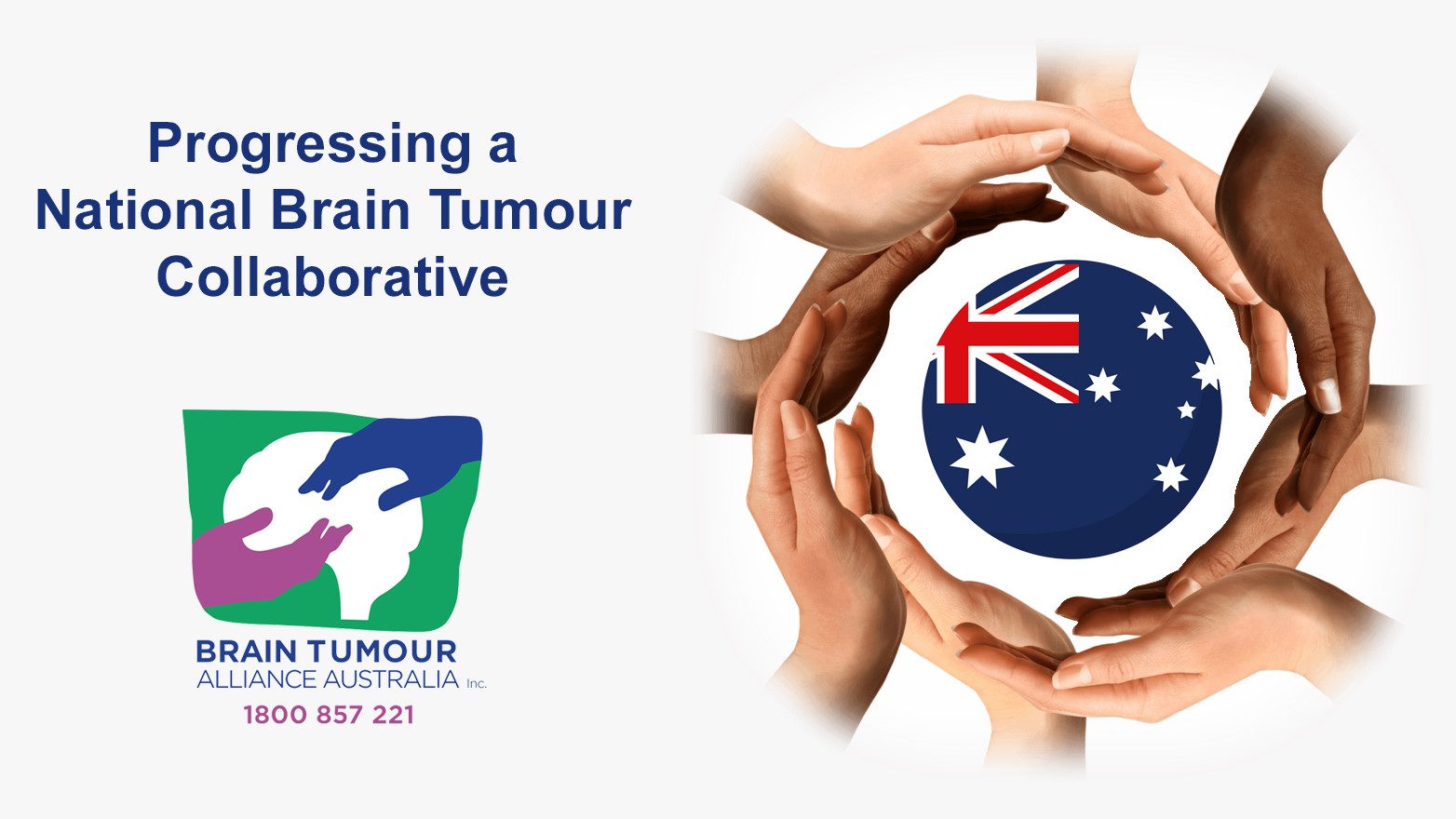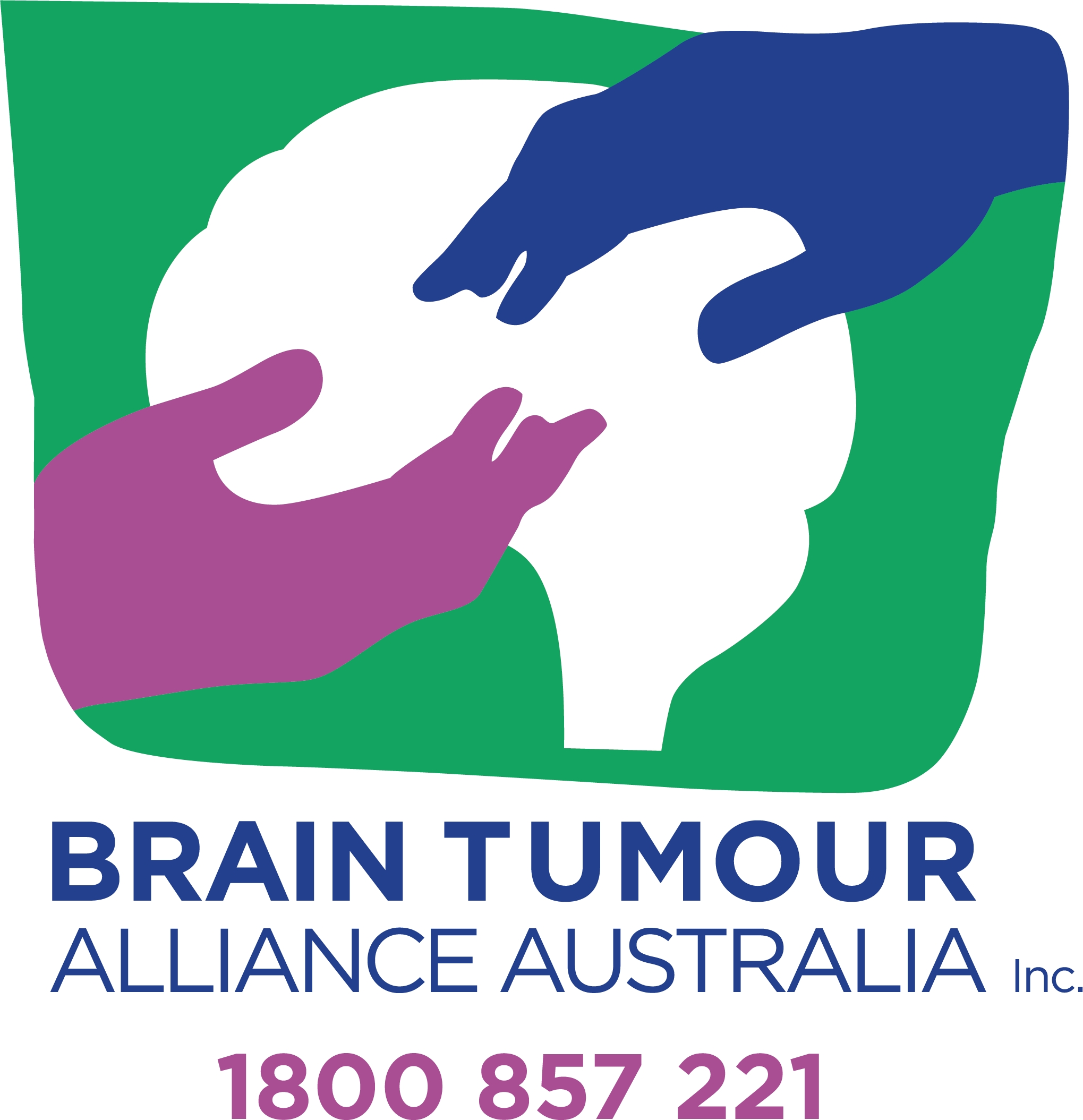

Craig Cardinal - BTAA Vice Chair
There is an urgent need for a national collaborative to address the current and vitally important issues impacting Australian brain tumour patients, families and carer communities. The Brain Tumour Alliance Australia (BTAA) has been proactively engaging national brain tumour support partners and is currently in discussions regarding opportunities and benefits of forming a national brain tumour collaborative. The aim of this collaborative is to provide a cohesive national body which will advocate for and articulate specific issues affecting brain tumour patients, families and carers (consumers) across Australia.
The Current State
The devastating impacts experienced by Australian brain tumour consumers from date of diagnosis is well understood by the support community. However, consumers have not received due attention from the Australian government. Over recent years, Australian brain cancer medical practitioner and research communities, support foundations and philanthropists, have fought hard to draw focus to the critical need of better funding for research. As a consequence, the Australian Government – through the Medical Research Future Fund – established the Australian Brain Cancer Mission (ABCM). The ABCM funds critical research into cures, treatments and ways to improve quality of life and survivorship. In parallel to the ABCM grant scheme, many Not For Profit (NFP) brain cancer support organisations continue to independently undertake substantial and successful fundraising activities, which seek to further fund medical research and survivorship support. Survivorship for brain tumour consumers is a devastating journey from date of diagnosis. Consumer needs are complex and varied. The ABCM has recently provided grants to research aspects of brain cancer survivorship. Within the various consumer support communities lies significant contemporary knowledge and understanding of consumer survivorship challenges. However, there is a lack of a national and uniform approach to brain tumour survivorship. Funding raised by foundations go towards support services such as brain cancer care coordinators and nurses alongside services such as retreats, financial grants, music therapy and counselling services. This is an attempt to meet consumer needs that have are not met via other means. Despite our commonality in cause and commitment, we remain more fragmented than is ideal. While it is critical to sustain the specialised focuses of individual organisations, without a collaborative to address common issues and provide strong national advocacy, we will continue to have issues that extend and compound the suffering of our consumers.
The Challenge
Brain tumours are very regularly causative to a substantial Acquired Brain Injury. Consumers regularly suffer significant physical, cognitive and psychosocial impairments as a consequence of disease and treatments; seizures, hemiplegia, speech impairments, cognition, depression, concentration, despair, confusion, lethargy, incontinence, mobility, employability, migraines – and so forth – are common. These impairments are most often lifelong and greatly affect sufferers and carers capacity to engage in the community. Most consumers experience devasting social and economic impacts. Our foundations and various supports interact with thousands of consumers in a variety of different ways. Through surveys and the provision of a wide range of supports, the partner communities currently have a good understanding of the plight of consumers through their survivorship journey and the subsequent required supports. Whilst the incidences of brain tumours are comparatively low to other tumour types and diseases, the impact of the potential resultant impairments to sufferers and families is often devastating.
Examples
Brain Cancer Care Nurses
We know that the quality of life and overall survivorship experiences of consumers is greatly improved when they are able to connect to support. These supports include dedicated brain cancer support coordinators/nurses – typically funded through NFP and typically only in certain regions. Foundations such as Mark Hughes Foundation, Care2Cure and others, fund critical brain cancer nurses/coordinators. Despite this, there is no universal or national understanding of the requirements. The implementation of specialist prostate cancer nurses across Australia is an example of how government supports important programs when they have a detailed and holistic understanding of the requirements.
Access to government services
We know that accessing NDIS changes the lives of consumers, yet the capacity required by consumers to navigate the access requirements is often greatly diminished due to nature of these impairments. The Peace of Mind Foundation is working hard to support consumers to access NDIS. Though, without a national approach the support is very limited and unsustainable through a solely volunteer support base. MS Australia is an example of a funded, cohesive national approach delivering a vital service of assisting their communities to access NDIS. We know that the comprehensive supports often required by our consumers cannot be met through mainstream services and require NDIS supports. Hence, access can be vital.
Survivorship Framework and Narrative
Our patient, family and carer community are extremely vulnerable to government lacking an understanding of these significant challenges. The Peter Mac Cancer Foundation and the Clinical Oncology Society of Australia (and the Cooperative Trials Group for Neuro-Oncology) for example, have vested heavily in cancer survivorship understanding and frameworks. Yet, there remains no national brain cancer survivorship framework that provides a unified narrative for our community. A focused framework and narratives would allow us to advocate on national core issues and greatly assist governments and supports to understand consumer requirements.
The aim of the Collaborative
An important role of the collaborative would be to quickly develop an understanding of the core national issues. The collaborative would be represented by all key stakeholders (research, support foundations, NGO etc). The future funding, governance and operating model of the collaborative would need to be determined. BTAA have engaged widely on this initiative and continue to do so. Feedback has been extremely encouraging. We will continue to work with partners to progress an inaugural meeting, which is envisaged around mid-May 2022.
If you represent a brain tumour organisation or service and have not been contacted about this very important initiative, or if you have been affected by a brain tumour diagnosis and would like to comment, please contact the BTAA enquiries@btaa.org.au
If you haven’t subscribed to BTAA yet, please register and we will send you monthly newsletters and you will also receive updates on our National Brain Tumour Collaborative plans and progress.
To return to the BTAA homepage, please click here.

